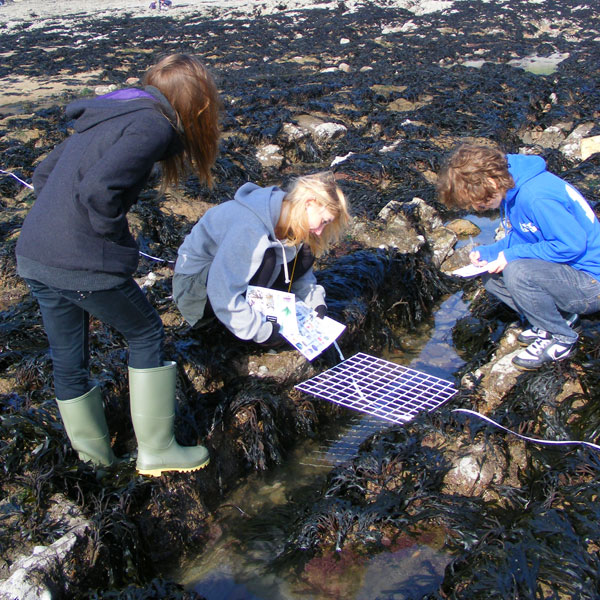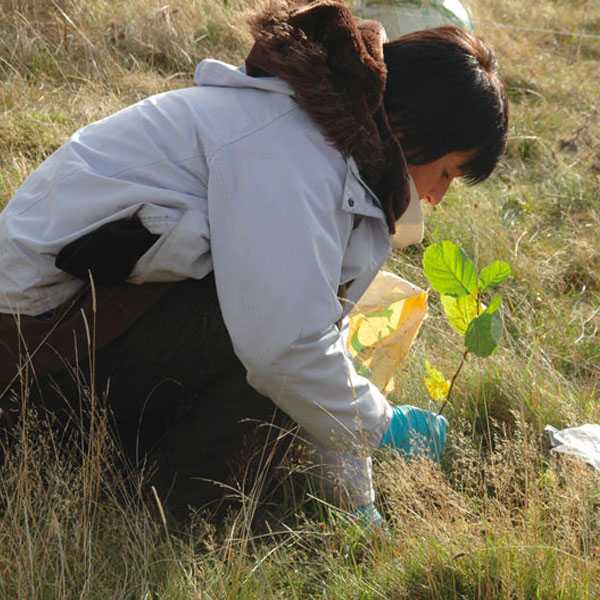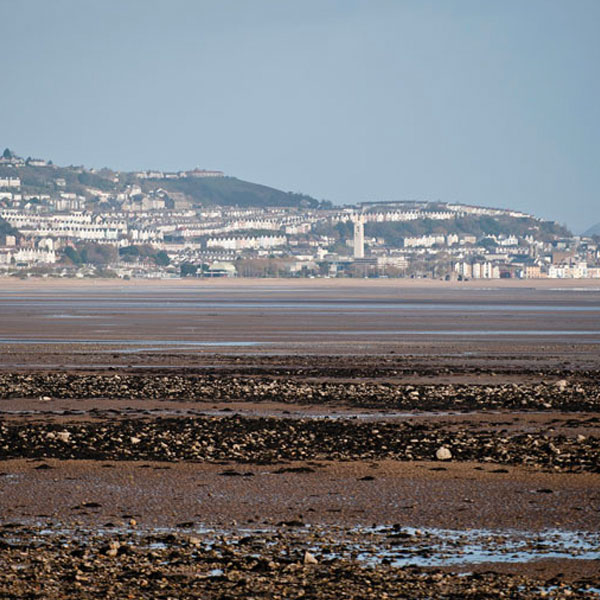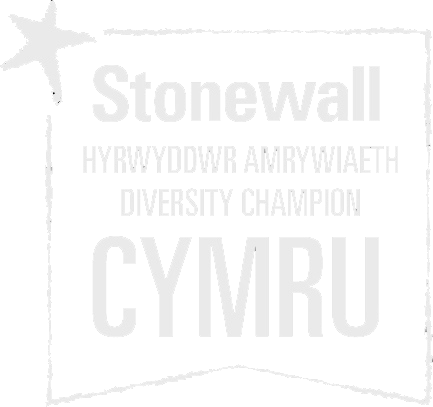UWTSD Home-Study With Us-Undergraduate Courses- Environment, Sustainability and Climate Change (BSc, HND, HNC)
Climate change and anthropogenic activities are threatening life on Earth. Lifelong environmental education has a role to play in making sustainability a central part of a global society. The United Nations Climate Change Learning Partnership acknowledges that given most children alive today will likely suffer the consequences of a changing climate, it makes sense that they should be prepared and be part of the race to “build capacity” towards sustainability.
The course team has developed an excellent record in environmental research, particularly coastal and marine management and sustainability. These themes feed into the programme structure. The course also considers the conservation of environmental habitats and embedding green infrastructure and spaces in a city environment. Given Swansea’s location and local climate, the challenges of flooding provide an opportunity for students to engage with ‘soft’ or ‘natural’ engineering options.
You will learn the science that underpins environmental issues and share information on key thematic issues with authorities and public groups alike. The course’s broad scope is the result of robust industrial engagement.
The programme will help you build skills that are relevant to a wide range of employers, including critical thinking, the capacity to contextualise complex issues and the ability to present a coherent argument.
Created by our environmental students and alumni with useful information about Swansea, the course and how to survive it, advice on volunteering and employment opportunities to pursue after completion of your studies.
Pathway Options
Environment, Sustainability and Climate Change (BSc)
UCAS Code: SCC1
Apply via UCAS
Environment, Sustainability and Climate Change (HND)
UCAS Code:SCC8
Apply via UCAS
Environment, Sustainability and Climate Change (HNC)
UCAS Code: SCC9
Apply via UCAS
Applicants to full-time courses can apply through UCAS. Applicants to part-time courses can apply through the University.
Book an Open Day Request Information
Tuition Fees 2023/24:
Home (Full-time):£9,000per year
Overseas (Full-time):£13,500per year
Why choose this course?
- Small class sizes where you have the chance to ask questions and to learn actively.
- Opportunities for practical learning via fieldwork using our great geographic position.
- Active engagement with employers, especially via our field courses where you will get to know reserve managers and environmental consultants.
- State of the art purpose-built campus and facilities.
- A fresh approach to education rooted in its locality but with a broad global perspective.
What you will learn
If you are passionate about preserving the environment and want to develop the knowledge and skills to do so, then this course could be for you. The city centre campus is ideally situated between the Gower Peninsula and the Brecon Beacons National Park – providing perfect study sites for coastal science and habitat management.
We have a seventeen-year history in delivering courses on Environmental Conservation and with relatively small class sizes, there are lots of opportunities for shared discussion with your peers and experienced lecturers.
This, combined with practical fieldwork, makes it a great course for gaining both the theoretical knowledge and practical skills that employers value. Our staff offer a friendly, accessible learning environment, with expertise in coastal, marine and freshwater ecology, waste management and environmental assessment. All are research active allowing students to engage with, and benefit from, research projects.
Year One - Level 4 (HNC, HND & BSc)
- Biodiversity and Ecosystem Services (20 credits; compulsory)
- Climate Change and Visual Activism (20 credits; compulsory)
- Contemporary Challenges: Making a Difference (20 credits; compulsory;Graduate Attributes Frameworkmodule)
- Field and Laboratory Skills (20 credits; compulsory)
- Learning in the Digital Era (20 credits; compulsory;Graduate Attributes Frameworkmodule)
- Physical Landscape and the Geosphere (20 credits; compulsory).
Year Two - Level 5(HND & BSc)
- Changemakers: Building your Personal Brand for Sustainable Employment (20 credits; compulsory;Graduate Attributes Frameworkmodule)
- Changemakers: Creativity and Value Creation (20 credits; compulsory;Graduate Attributes Frameworkmodule)
- Coastal, Marine and Wildlife Conservation (20 credits; compulsory)
- Environmental Legislation and Circular Economy (20 credits; compulsory)
- Low Carbon Technologies (20 credits; compulsory)
- Water Resources and Environmental Monitoring (20 credits; compulsory).
Year Three - Level 6 (BSc)
- Environmental Assessment, Management and Auditing (20 credits; compulsory)
- Geographical Information Systems and Remote Sensing Technologies (20 credits; compulsory)
- Habitat Management and Building Resilience (20 credits; compulsory)
- Independent Project (40 credits; compulsory;Graduate Attributes Frameworkmodule)
- Sustainable Urban Communities (20 credits; compulsory).
Assessment varies across modules using a variety of methods from field and lab reports to presentations, essays and exams to give you the opportunity to do well and to demonstrate your developing knowledge.
We pride ourselves on giving excellent feedback at all stages of the course to help you to progress.
We use feedback to develop your course knowledge and, importantly, to help you to develop your wider skills in report writing, and communicating science so that you can demonstrate your ability to work effectively in the environment sector at the end of your course.
This Framework aims to develop your professional skills and competence alongside your academic subject knowledge. You’ll study up to 40 credits per level throughout your programme from the Graduate Attributes Framework.
The Graduate Attribute modules are designed to enable you to develop, and evidence, a range of career-focused skills related to your subject area. These skills include digital competency, research and project management, as well as such personal competencies as communication, creativity, self-reflection, resilience and problem-solving.
- Find out more about theGraduate Attributes Framework
Related Links
Study Environmental Conservation at UWTSD
关键信息
Environment, Sustainability and Climate Change (BSc)
You will need 96 UCAS Tariff points from A levels or their equivalent (240 UCAS tariff points)
Environment, Sustainability and Climate Change (HND)
You will need 48 UCAS Tariff points from A levels or their equivalent (120 UCAS tariff points)
Environment, Sustainability and Climate Change (HNC)
You will need 40 UCAS Tariff points from A levels or their equivalent (100 UCAS tariff points)
Foundation Year in STEM (environmental stream)
We welcome all potential students with an interest in and commitment to the environment to contact us and discuss entry requirements.
An alternative to A levels
Successful completion of an appropriate Access Course or Professional vocational experience
We particularly welcome mature students with relevant vocational or even voluntary experience in the environment sector. The requirements for entry will vary depending on your background. Sometimes we may ask you to take an Access course to prepare you for study, or we may accept you based on your experience alone.
If you have a passion for the environment but a non-standard educational background, please do feel free to contact us to discuss your place.
Our environment degrees combine academic study with the development of professional skills and competencies. You will gain experience in transferable employment skills, including:
- Data analysis
- Environmental assessments
- Habitat surveying
- Identification of environmental stressors
- Information dissemination
- Oral and visual presentations
- Report writing
- Species identification
Students take part in some volunteering days as part of fieldwork training and are encouraged to find summer work placements which will provide important work experience.
You will be encouraged to use collaborations with work experience providers to collect data for your dissertation (your own major research project in your final year of study).
One of our school research projects, reclamation of mining spoils, provides many opportunities in data collection and soil analysis. Other opportunities have been made available with the City and County of Swansea, where students have volunteered in collecting and interpreting waste data from surveys.
News
- New roles for UWTSD Graduates protecting and enhancing the environment
- UWTSD students to visit Chernobyl to study the impact of the disaster on the environment
Careers
Our Environmental Conservation programmes cover a broad range of topics that can lead to a huge number of careers. Here is a list of our recent graduates new job roles:
- Bat Survey Officer
- Business Development Manager at Hydro Industries
- Cetacean Research Officer in Costa Rica
- Community and Nature Conservation Ranger at National Trust
- Conservation Manager at RSPCA Llys Nini Animal Centre
- Data Analyst at PHS Group
- Data Support Technician at Veolia
- Ecologist at Jacobs UK Ltd
- Energy Officer at Neath Port Talbot Council
- Environmental author
- Environmental Officer at Natural England
- Environmental Specialist at EcoVigour
- 环境技术员石棉
- Environmental Technician, Water Treatment, Oxfordshire
- Evaluation & Monitoring Officer at Down to Earth
- Fisheries Technical Officer at Natural Resources Wales
- 洪水和窟er Officer at Welsh Local Government Association
- Flood Risk Technical Assistant at Rhondda Cynon Taff Borough Council
- Health, Safety and Environmental Consultant
- IT Infrastructure Analyst at Coastal Housing Group
- PhD Researcher
- Press Officer at the Met Office
- Production team on Springwatch and Learning Assistant at Wildfowl and Wetlands Trust
- Project Manager at Hydro Industries Ltd
- Researcher for Nutopia
- Rural Development Manager at Neath Port Talbot
- Senior Ecologist at AECOM
- Senior Ecologist at South Wales Trunk Road Agent, Neath
- Sustainability Officer at UWTSD
- Team Manager of Commercial & Domestic Recycling, City & County of Swansea
- 浪费水在Dwr Cymr资产遥测技术u Welsh Water
- Water Quality Permitting Officer at Cardiff
It is possible to complete this programme of study without any additional costs.
Students may wish to purchase materials for modules, such as major project but this is not a requirement and will have no bearing on the final grade.
Ella Wilkinson, BSc(Hons) Environmental Conservation
"I chose Environmental Conservation because I care about the planet and want to make a difference. Climate Change is an issue for our generation and if we don't act now there will be serious repercussions for the environment. I love the whole course, even statistics and know it will equip me for a future career in the environmental sector."
Kate Denner, BSc (Hons) Environmental Conservation
"I loved our tutors, for me they were always available, you could ask questions, they gave good direction. They put me forward for publications twice, so opportunities like that. The class sizes weren’t huge, you weren’t just a number. We spent a lot of time doing practical activities out on Gower. It’s an absolutely wonderful location, the sort of environment you take advantage of."
You may be eligible for funding to help support your study. To find out about scholarships, bursaries and other funding opportunities that are available please visit ourBursaries and Scholarshipssection.
Visit ourAccommodationsection to find out more.











